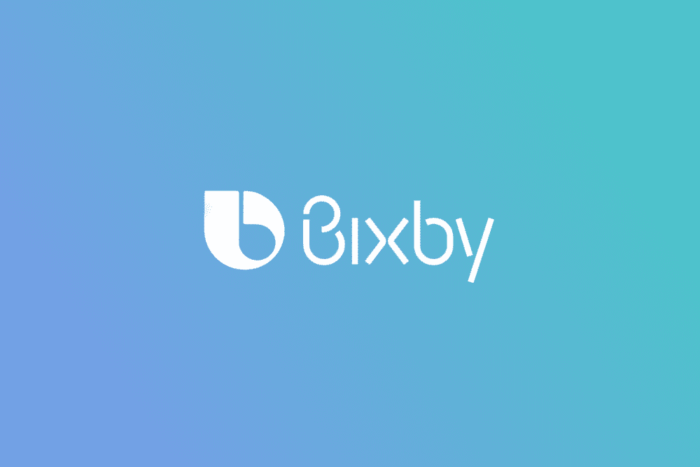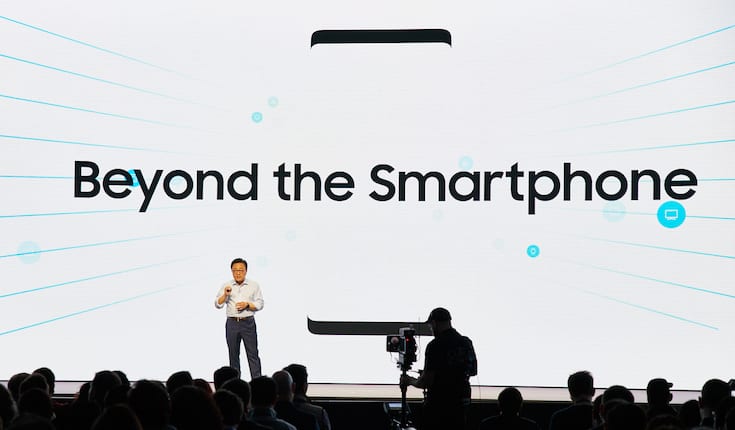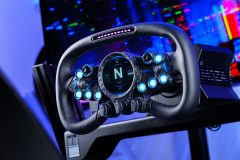At the Samsung Developer Conference closed yesterday in San Francisco USA, Samsung depicted its ambitious strategy for AI and announced Bixby 2.0, a major upgrade to Samsung’s flagship virtual assistant. Bixby 2.0, which is meant to “start a paradigm shift” in devices”, is the second-generation version in just six months since the launch of Bixby. Such a rapid acceleration certainly proves how much the company is laser-focused on moving fast in the AI domain, and the importance of what is at stake. Bixby 2.0 promises remarkable additions and improvements to the previous version in the realm of voice, smart home and support for third-party services.
But why Bixby 2.0 is so much important for Samsung?
From an App economy to an AI-powered economy
Tony Aube pretty much said it all in 2015: no UI is the new UI. Long story short: when machine-learning based voice recognition, natural language processing and, broadly speaking, conversational AIs will reach a critical level of quality, Artificial Intelligence will be everywhere and this will have a profound impact on access and user interface design.
Of course it’s weak AI what we’re speaking about, not the strong AI of I, Robot. Despite this clarification though, the prophecy doesn’t look so far-fetched. On the contrary: it’s already happening. At last Google’s hardware event, Mountain View demoed on stage earbuds capable of translating 40 languages in real-time – Star Trek Universal Translator anyone? Thanks to Google Assistant, you now have a weak AI available through voice commands or at your fingertips. At the same time, Amazon’s Alexa features 25k skills from companies like Starbucks, Uber, and Capital One and its usage is spreading like wildfire, with Amazon already controlling more than 70% of the voice market and mind-boggling forecasts for Alexa’s near future.
All this excitement for popular assistants dates back to 2015, when Magic’s coverage on TechCrunch popularized the concept of a service that let you wish for (almost) anything just with your voice and then delivers it to you. The concept didn’t involve AI back then, just humans doing the hard work, but the idea of a touchless, voice-first interface was an instant sensation. Many followed. Facebook began working on an hybrid service juxtaposing humans with a first AI approach. Codename “M”, it should have been capable of engaging in natural conversations and doing your bidding. Interestingly, after two years “M” is now available and, to quote CNN, “This M is not like the old M. Prepare to be underwhelmed”.
Apple of course doesn’t just sit there looking out of the window. Cupertino was the first to bring voice-first applications to mainstream attention with Siri’s acquisition in April 2010, but now is struggling to become an AI Moloch.
And the list doesn’t stop here. Everybody’s into AI.
Regardless of hits and missed shot, the common denominator is clear: thanks to breakthrough in machine learning virtual assistants – now so goofy and weird – are set to be our butlers for the world to come. It’s just easier, and the more we go forward the easier will get. Virtual assistants are more and more becoming the gateway to access the digital world, and with the Internet of Things becoming normal, much of the real world as well will be impacted.
The app economy is not here to stay. To use Mary Meeker’s words, smartphone growth is slowing. The (long) future is something much more in the likes of Her, hopefully without the dystopian aftertaste: a (strong – at least in the movie, but for now we’re stuck at weak) AI doing your bidding, interconnecting with millions of other services and IoT devices in real-time. A possible but concrete horizon that casts a shadow over search, online recommendations and even browsing.
AI has serious odds to be the One Ring to rule them all, and there’s a gold rush to be the first at getting it.
Bixby to be the platform for the whole Samsung ecosystem
There’s a bunch of titbits for Bixby. First of all, the much awaited full integration with Viv. The South Korean company launched Bixby just after the purchase of Viv, the intelligence assistant developed by the creator of Siri. Bixby 1.0, supported on Galaxy S8 and Note 8, has been lacking a voice-recognition software in the States.
Also, Bixby 2.0 will bring a ubiquitous experience across all Samsung devices and services.
“Bixby 2.0 will be a fundamental leap forward for digital assistants” says Eui-Suk Chung, Executive Vice President at Samsung Electronics “and represents another important milestone to transform our digital lives. Today’s assistants are useful, but ultimately still play a limited role in people’s lives. People use them to set timers and reminders, answer trivial questions, etc.
We see a world where digital assistant play a bigger role, an intelligent role, where one day everything from our phones, to our fridge, to our sprinkler system will have some sort of intelligence to help us seamlessly interact with all the technology we use each day”
Samsung has with Bixby 2.0 the unique advantage of being a world-leading enterprise both in the hardware and in the software field as well. Certainly Google can push sales of Google Home and Amazon can do the same with the Echo family, but Samsung already is in our houses. From refrigerators to home speakers up to TVs, Samsung has more than a foot set in the smart home domain.
What Samsung is ultimately building is a community of developers. Not a walled garden, but a platform and a playground.
“And finally, and most importantly, Bixby 2.0 will be open. We know Samsung cannot deliver on this paradigm shift by ourselves – it can only happen if we all, across all industries, work together, in partnership. […] Starting today, we’re announcing our first private beta program with Bixby SDK, which will be available for select developers. We will work as one team, innovating, collaborating, and bringing Bixby 2.0 to life. Over time, we will increase the number of participants in the beta, and ultimately make the Bixby SDK available to all developers.
Through Bixby 2.0, developers from all over the world will finally be able to deploy their Bixby-powered apps through the entire ecosystem of Samsung devices and services.
Sounds like the old dream of “Write once, Run Anywhere”.


















